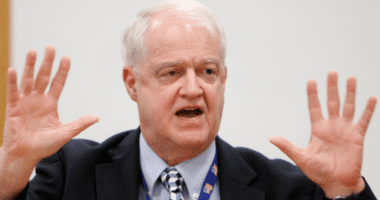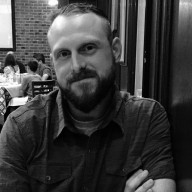Oregon Tribal Casino Operators, Legislative Leaders Set To Meet

Another legislative session will pass with no significant changes to the gambling industry coming out of Salem – and whether that’s a problem depends greatly on perspective. Oregon tribal casinos want an opportunity to communicate their view with the leaders of the state’s legislature.
Their concerns were clear during the legislative session through their request of and response to bills. While the bills fell short this time, that might only be a precursor to more action in the future.
Oregon tribal casinos request meeting
According to Nigel Jaquiss of the Williamette Week, several tribal gaming operators seek an audience with the heads of the OR legislature’s chambers.
Both OR Senate Pres. Peter Courtney and OR House of Representatives Speaker Dan Rayfield seem willing to meet with the groups.
Behind the request are five tribal groups with gaming compacts with the state. Those are the following:
- Cow Creek
- Grand Ronde
- Klamath
- Umatilla and the Confederated Tribes of Coos, Lower Umpqua
Siuslaw
What’s on the docket for discussion? Likely recent attempts to expand commercial gaming in Oregon.
Session was buzzing with Oregon gaming proposals
This session saw an attempt to introduce Oregon college sports betting to the Oregon Lottery‘s online partnership with DraftKings and a proposed historical horse racing machines facility near Grants Pass Downs.
The former died in the state senate without a vote, and the latter never came to fruition as the OR Racing Commission denied the business the appropriate license.
The tribes weren’t idle during the session. They pushed for legislation of their own. The meat of those bills took aim at HHR gaming in the state.
One of the bills the tribes requested would have greatly restricted the type of terminals that businesses with HHR licenses could offer to customers in the state. Another would have essentially put a moratorium on any new commercial gaming in Oregon until a study’s results were delivered to the legislature.
Like the bill to allow betting on college sports online, those bills are going nowhere right now. The possibility of that changing in future sessions seems to be what tribal leaders want to discuss.
Tribes seeking assessment of gaming industry in Oregon
In the letter seeking a sit-down with Courtney and Rayfield, the tribes’ position is quite clear.
“It has been more than 25 years since the state has led a comprehensive review of the state-gambling regulatory structure. Another examination is long overdue and necessary given the evolution of technology in gambling and the constant pressures to expand state government-sponsored and private gambling in Oregon.”
Like in many other states with tribal gaming, such groups see any expansion of commercial gaming as a threat to their businesses and possible violations of their exclusivity. In Oregon, though, that’s a complicated subject.
Take historical horse racing, for example. In 2013, the state enacted a law legalizing such a form of pari-mutuel wagering on horse races. In Oregon, tribal gaming has largely stayed out of offering such races.
Since then, though, HHR machines have evolved to resemble traditional slot machines in both appearance and function. That was the motivation behind the tribes’ request for a bill outlining parameters for such wagering.
It was also part of the reason why the Racing Commission ultimately denied a license for the Flying Lark. The proposal for hundreds of machines would have been too much like the gaming floor at a tribal casino in Oregon.
That’s no guarantee that decisions won’t go in a different direction in the future, though. Swaying legislators could lend toward that end.
Could Oregon tribes get assurances from meeting?
Oregonians shouldn’t read Courtney’s and Rayfield’s willingness to meet with tribal casino leaders as an endorsement of their positions by those two. After all, it was Courtney who sponsored the bill to allow betting on college sports on DraftKings in Oregon.
It’s uncertain whether the tribal leaders will leave the meeting with the two legislators with any further confidence of their future than they have now. At the very least, though, they’ll get a chance to have their say.
The meeting could lend some insight into the pair’s leanings on gaming in Oregon, though. Getting either Courtney or Rayfield to firmly commit to anything probably is an unrealistic expectation.
The tribes see the line between commercial gaming and their interests as fuzzy and that lack of clarity as a threat to their bottom lines. This meeting might be a step toward a bit more clarity.








